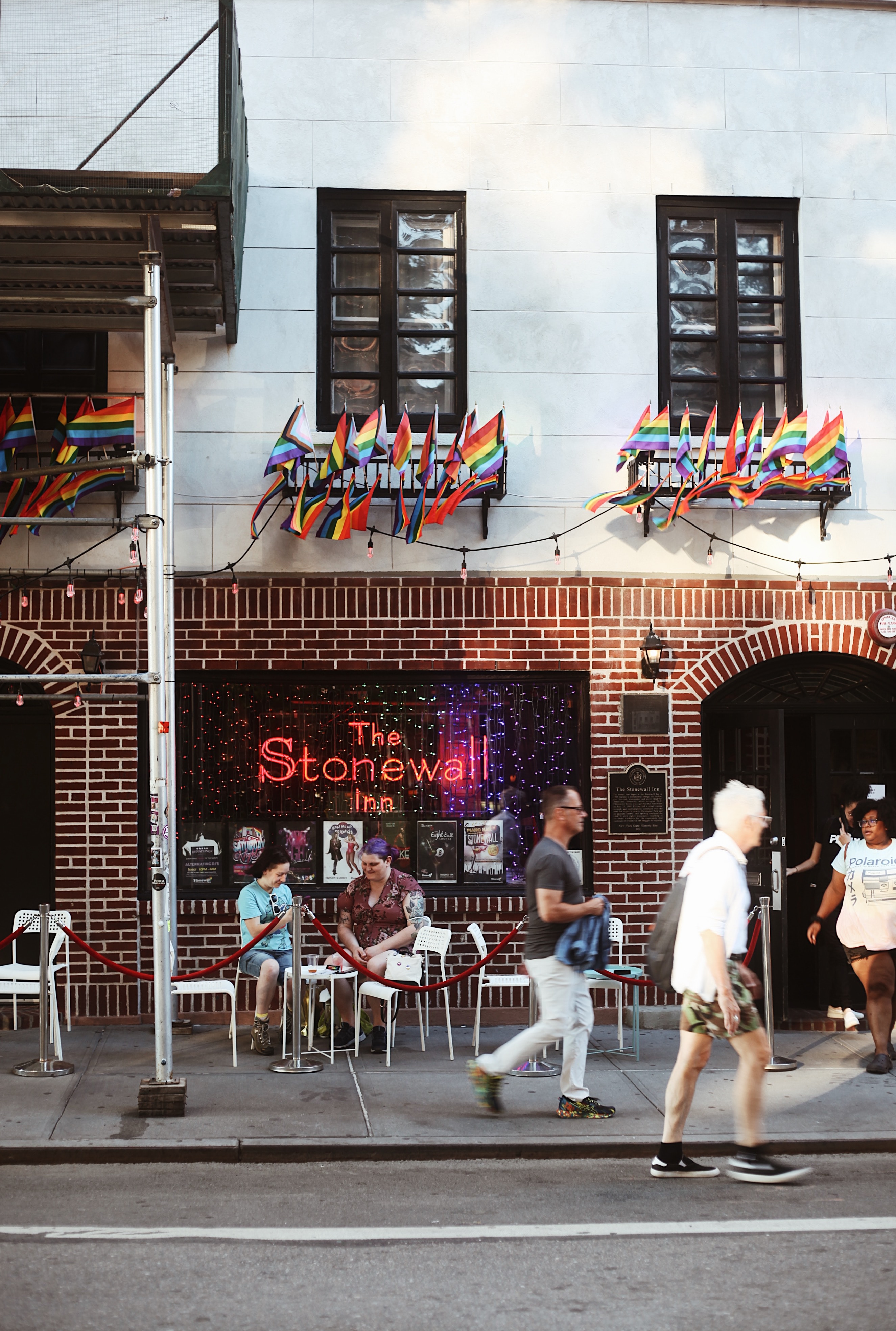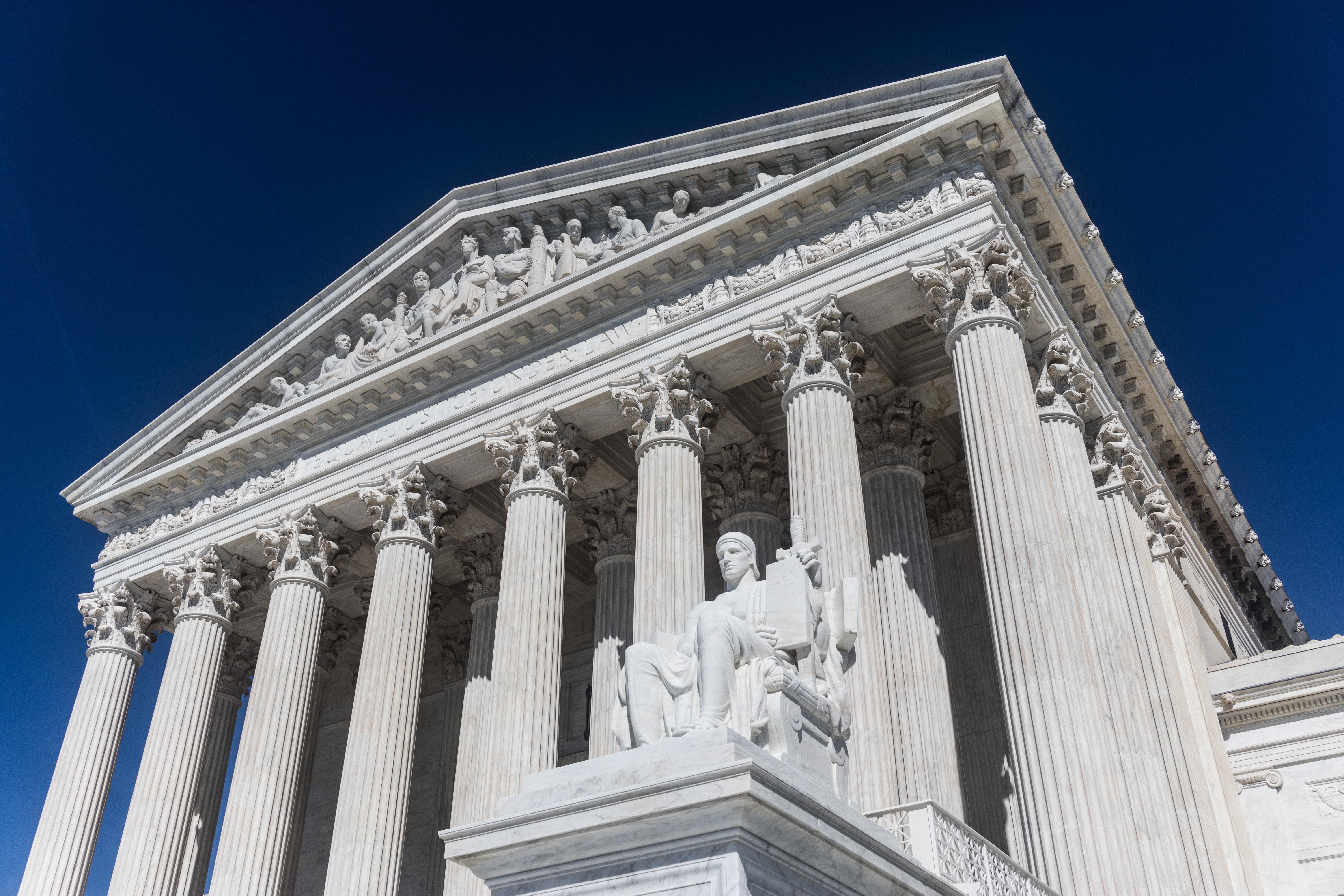14-2 Taking Pride into Our Work: The Road to Equality: A Timeline of Fair Housing Milestones for the LGBTQ+ Community
Aug 15, 2023
By Courtney Cooperman, NLIHC
For decades, the LGBTQ+ community has advocated for civil rights protections to guarantee equal treatment under the law. Despite ongoing discrimination, which puts LGBTQ+ individuals at greater risk of housing insecurity and homelessness, the LGBTQ+ community has made immense progress toward achieving fair and equal housing. However, a recent and alarming wave of state laws targeting the LGBTQ+ community demonstrates the need for stronger civil rights protections. This timeline presents a selection of milestones and setbacks in the movement towards fair housing for the LGBTQ+ community.
1969 The Stonewall Uprising Mobilizes LGBTQ+ Activists
The Stonewall Uprising is often considered the starting point of the LGBTQ+ liberation movement. Police raided the Stonewall Inn, a popular gay bar in New York City’s Greenwich Village, on June 28, 1969. Protestors fought back against police violence for six days. The Stonewall Uprising was not the first uprising against homophobic and transphobic police brutality, but it marked a turning point for LGBTQ+ visibility and activism. The first Pride marches were held one year later to commemorate the anniversary of Stonewall.

1979 National March on Washington for Lesbian and Gay Rights
Between 75,000 and 125,000 LGBTQ+ individuals and allies marched on Washington on October 14, 1979, the first national demonstration to demand federal LGBTQ+ civil rights protections. While activists had previously focused on local issues, this event marked the first time that the LGBTQ+ liberation movement turned its attention towards the federal government.
1982 Beginning of State-Level Anti-Discrimination Laws
Some municipalities and counties adopted anti-discrimination protections in the 1970s. In 1982, Wisconsin became the first state to outlaw housing discrimination based on sexual orientation. Today, according to the Movement Advancement Project, 23 states, one territory, and the District of Columbia explicitly prohibit housing discrimination based on both sexual orientation and gender identity. An additional seven states interpret their prohibition on sex discrimination in housing to include sexual orientation and/or gender identity.
1990 Federal Housing Resources and Protections for People With HIV/AIDS
The HIV/AIDS epidemic took a devastating toll on the LGBTQ+ community in the 1980s. Following nearly a decade of inaction, Congress passed the “AIDS Housing Opportunities Act,” a part of the “Cranston-Gonzales National Affordable Housing Act of 1990.” This legislation established the Housing Opportunities for Persons with AIDS (HOPWA) program, which funds housing assistance and supportive services for low-income people living with HIV/AIDS and their families. Congress also passed the “Americans with Disabilities Act” in 1990, which outlawed discrimination against people with HIV/AIDS.
2012 HUD Finalizes “Equal Access Rule”
Under the Obama administration, HUD took action to protect LGBTQ+ individuals’ access to housing. A rule finalized in February 2012, “Equal Access to Housing in HUD Programs Regardless of Sexual Orientation or Gender Identity,” prohibited HUD programs from discriminating based on sexual orientation, gender identity, or marital status, or from inquiring about an applicant’s sexual orientation or gender identity when determining eligibility.
2016 HUD Addresses Barriers for Transgender and Gender Non-Conforming Individuals
The 2012 “Equal Access” rule did not set policy regarding accommodation of transgender individuals in single-sex shelters. Upon reviewing its programs to determine whether further protections were needed, HUD determined that transgender individuals were facing severe discrimination and safety risks in the shelter system. To strengthen the 2012 rule, HUD finalized a new “Equal Access” rule in 2016, which requires HUD-funded programs with shared facilities to provide services based on an individual’s gender identity, rather than the sex assigned at birth or listed in official documents. The rule also prohibits intrusive questioning about gender identity.
2020 HUD Proposes Anti-Transgender Rule
Under the Trump administration, HUD proposed to weaken the “Equal Access” rule and allow shelter providers to discriminate against transgender and gender non-conforming individuals. The new rule would have allowed shelter providers to place individuals based on their own policies for determining the person’s sex, and to deny services based on the “good faith belief” that an individual’s biological sex or sex reflected in official documents was different from the sex that the shelter serves. The rule was never finalized, and the Biden administration officially withdrew it in April 2021.
2020 Supreme Court Issues Landmark Ruling for LGBTQ+ Civil Rights
The Supreme Court ruled in Bostock v. Clayton County that the Civil Rights Act’s protections against sex discrimination in employment also cover discrimination based on sexual orientation and gender identity. President Biden built on this transformative ruling with an executive order on Day One of his presidency, which clarified that all laws outlawing sex discrimination also prohibit discrimination based on sexual orientation and gender identity. President Biden directed all federal agencies to ensure that their policies were consistent with this interpretation of Bostock.

2021 HUD Affirms Anti-Discrimination Protections for LGBTQ+ Individuals
HUD was the first agency to implement President Biden’s executive order. In February 2021, HUD clarified that the Fair Housing Act’s protections against sex discrimination also cover discrimination based on LGBTQ+ status. People who believe they have experienced discrimination based on their sexual orientation or gender identity can now file claims with the Office of Fair Housing & Equal Opportunity.
2023 Human Rights Campaign Declares State of Emergency for LGBTQ+ Americans
The Human Rights Campaign, which is the nation’s largest LGBTQ+ civil rights organization, declared an official state of emergency for LGBTQ+ Americans on June 6. The declaration follows an alarming spike in state-level anti-LGBTQ+ legislation, with more discriminatory bills signed into law in 2023 than any previous year on record. Many of the bills specifically threaten the safety and dignity of transgender and gender non-conforming people. The Human Rights Campaign released an LGBTQ+ Guidebook for Action to help LGBTQ+ Americans navigate the dangerous climate, file civil rights complaints, and advocate to oppose discriminatory legislation.